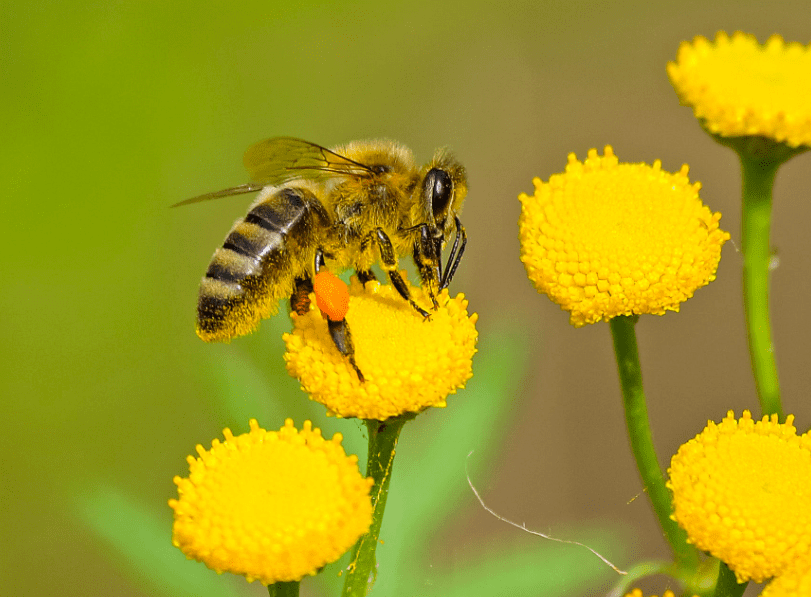If you’ve ever gotten stung by a bee, you know how painful it can be. Considering how tiny a bee really is, the amount of pain it can inflect is incredible. The worst part is that the pain lasts for a few days. However, most people will fully heal from a bee sting within a couple of days with no serious long-term side effects.
It must be kept in mind that most bees and stinging insects will only attack you if you bother them or touch their nest. When picnicking outside, you might commonly find yellow jackets. If you’re not careful and start to bother them, they can seriously harm you!
The Most Aggressive Types of Bees
Have you ever wondered which bees you should stay away from at all costs? We’ll break it down for you- definitely honeybees and bumblebees. However, these bees will only attack you if you bother them. Once they sting, the smaller, hairier bees die off. Yellowjacket wasps are known to cause painful stings. They have smoother, more balanced bodies than other bees. Unfortunately, you could be stung by yellow jacket wasps multiple times as they do not die after stinging once.
Yellowjackets feed on smaller insects. However, as summer ends, these insects become hard to find. Yellowjackets then get attracted to fruit fallen from a tree or the garbage left in an open trash bag. In fact, they can also be attracted to picnics that contain sugary soda cans. These bees are constantly on the search for food and sugar to feast on. If they ever feel like you are going to take away their food, they will feel threatened and attack you. Don’t be surprised if a yellow jacket chases you for a couple of hundred feet before going back for its food. In case you do get stung, make sure to leave the area as soon as possible.
If you want to get rid of a wasp, don’t crush it. Crushing it will only release pheromones that will attract other yellow jackets. Instead, just quickly flick the bee off. If you get stung, don’t worry; you may experience some moderate swelling on or around the surrounding area, but it will subside within a week.
How to Care for a Sting
Get Rid of the Stinger ASAP
In case a stinger is left behind in your wound, make sure to get rid of it fast (within the first couple of seconds). To lower the venom injected in your body, scrape the stinger out. This is a better technique than squeezing or pulling it out.
That being said, do not focus all your attention on the technique. Taking the stinger out as soon as possible is the most important factor to focus on. Usually, an efficient scrape of the fingernail will get the job done.
Clean
Using a disinfectant soap and water, wash the wound and the surrounding area.
This will significantly help lower the chances of infection as residual venom is removed. Make sure to keep a gentle touch on the wound. Too much pressure may irritate it, causing more pain.
Ice
To lower the swelling and reduce the throbbing pain, place an icepack on the wound and let it stay on for 20 minutes.
Medicine
To soothe the wound, lower the pain, and reduce the incredibly annoying itching sensation, put a thin layer of hydrocortisone cream or calamine lotion on your wound. Once done, use a bandage to cover it up.
Even though you may find loads of DIY home remedies on Google, such as using baking soda, honey, or meat tenderizer on the wound, it is better to stay away from methods that have not been medically or scientifically proven. You don’t want to end up with an infection, right?
To lower the swelling and itching and make sure you do not get a fever, you can also take an oral antihistamine, such as Benadryl. This will prevent your body from contracting an infection and will help you deal with the bee sting.
Conclusion
Bee stings can be incredibly painful. Even though they usually subside after a week, getting past every single day with the throbbing pain can feel never-ending. In case of a serious reaction, make sure to contact your healthcare professional.
If you have a bee infestation or stinging insects in your yard, it is wise to call a professional pest control company that will remove all insects from your household, lowering the risk of stings for you and your family. Give AntsPlus a call today, and we will help you solve this annoying problem!
